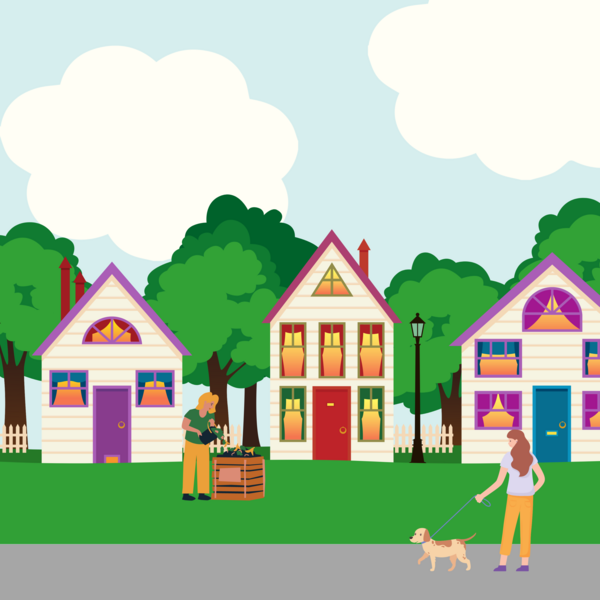The City of Essex Junction would like to encourage residents to emphasize public health and safety by picking up after their dogs and continuing to practice good composting methods.
Pick up Dog Waste:
Pet waste is a major source of bacteria and can lead to excess nutrients in local waters. Pet waste can also transmit diseases and parasites to humans and pets.
A dog that defecates in any public area or on the private premises of another person and whose owner does not immediately remove the fecal material and dispose of it in a sanitary manner is in violation of the City's Regulation of Dog ordinance.
The best practice for disposing of pet waste is to use a pet waste bag. Pet waste bags can be picked up for free at the City Offices or purchased at a pet supply store. Once you have used a bag, dispose of it and its contents in a trash receptacle, keeping our streets, sidewalks, and waterways clean and safe for everyone to enjoy. Follow these guidelines to ensure you and your dog are courteous community members.
Composting and Animals
Practicing good composting methods protects animals and people because it reduces the chance that you will accidentally feed an animal. Here are a few reminders to help keep unwanted animals out of your compost bin and neighborhood.
- Compost in a hard, durable bin, ideally with a lid that would be challenging for an animal to open. Line the bottom of the bin with wire-mesh hardware cloth to keep critters out.
- Cover 1-part food scraps ("greens") with 3-parts "browns" (dried yard debris, wood chips, sawdust, or shredded paper). Mix occasionally and cover exposed food scraps with more browns to reduce odors.
- Empty the bin in the fall to make space for the scraps to freeze in the winter; shovel any fresh food scraps back into the bottom of the empty bin. The frozen winter scraps will decompose as they warm in the spring; add lots of browns and stir frequently at this time. Use compost on your lawn or plants.
- Don't compost meat and bones, including animal carcasses, at home. Instead, bring them to a compost drop-off or put them in the trash.
- Consider bringing food scraps to transfer stations and other local drop-offs.
For more information, check out the following resources from the State of Vermont’s webpage on food scraps and composting.

